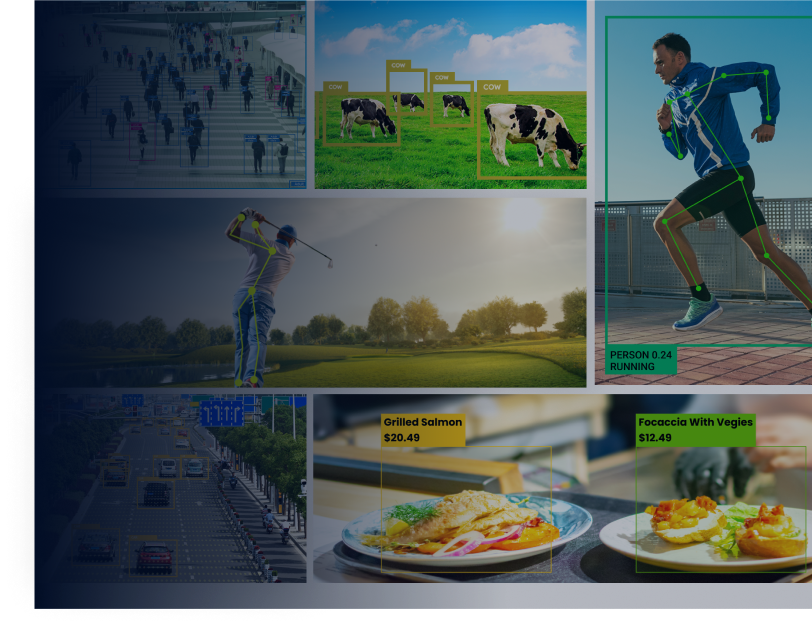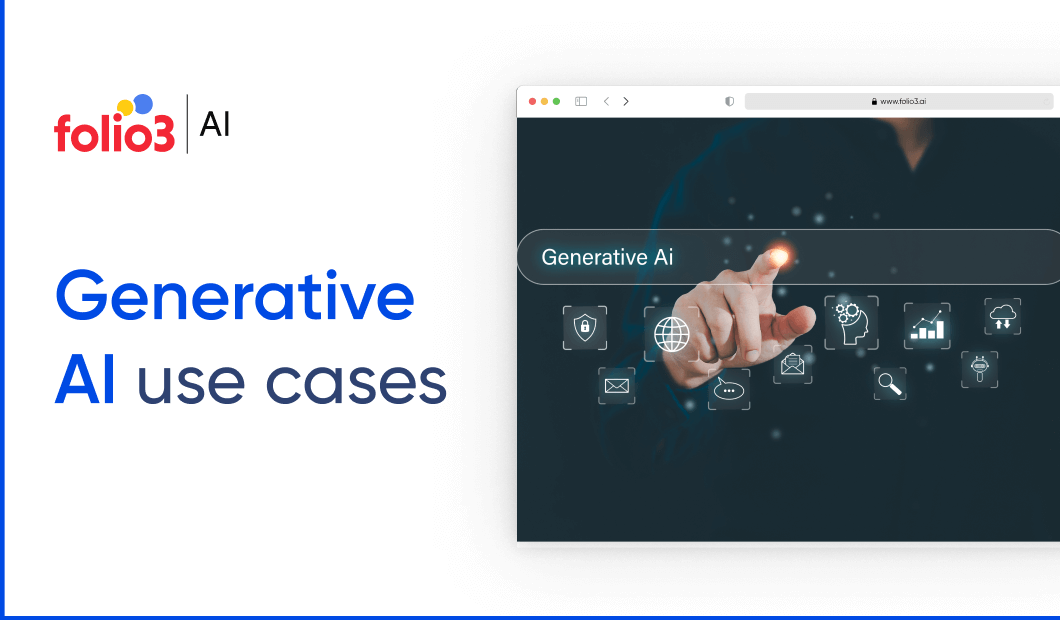Generative AI is redefining how industries operate by automating complex tasks such as writing, design, coding, and analysis—tasks that once depended entirely on human input. Powered by deep learning and neural networks, it can generate realistic text, images, and software code while significantly improving speed and productivity.
Its applications are already visible across sectors: generating content for media and marketing, identifying new drug compounds in pharmaceutical research, personalizing customer outreach in e-commerce, and automating software development processes.
This blog explores the most impactful use cases of generative AI and examines how it’s driving real change in business and technology.
1. Content Creation and Media Generation
A leading use case of generative AI is content creation, where tools like GPT-4, DALL·E, and Stable Diffusion generate high-quality text, images, and videos.
- Text Generation: AI systems now write blogs, articles, product descriptions, and marketing copy with near-human fluency. Businesses use them for website content, news briefs, and automated reporting, cutting content costs and accelerating output.
- Image & Video Generation: AI can create lifelike images, deepfake-style videos, and digital artwork. Industries such as gaming, entertainment, and advertising use these tools to speed up production and reduce dependency on manual design work.
- Music & Voice Synthesis: Generative models now compose original music, generate synthetic voices, and assist with voiceovers. This is especially useful in gaming, ad campaigns, audiobooks, and virtual assistants, where AI audio tools enhance personalization and reduce production time.
2. Personalized Marketing and Customer Engagement
Companies utilize generative AI to elevate customer experiences and boost engagement via hyper-personalized marketing campaigns, resulting in higher conversion rates and enhanced customer satisfaction.
- Chatbots and Virtual Assistants AI-powered chatbots offer instant, human-like conversations. Through advanced AI chatbot development, they reduce reliance on human agents and integrate seamlessly with CRMs to provide personalized recommendations.
- Ad and Email Personalization
AI studies user behavior and purchase history. It creates highly targeted ads and email campaigns that boost engagement and drive sales. - Product Recommendations
AI-based recommendation systems analyze large datasets. They suggest products aligned with user preferences, improving shopping experiences and increasing revenue.
3. Healthcare and Drug Discovery
Generative AI plays a vital role in healthcare by speeding up drug discovery, enhancing diagnostics, and personalizing patient care.
- Drug Discovery and Molecular Design: AI models assess chemical compositions and create new molecular structures, drastically cutting down the time and cost of drug development. This AI-driven approach has resulted in significant breakthroughs for new treatments in diseases such as cancer and Alzheimer’s.
- Medical Imaging and Diagnostics: AI improves medical imaging by refining scans for precise disease detection. Deep learning models support radiologists in spotting abnormalities in X-rays, MRIs, and CT scans with remarkable accuracy.
- Personalized Treatment Plans: AI-driven systems develop customized treatment plans by evaluating patient data and genetic information and predicting health outcomes, fostering precision medicine, and enhancing patient care.
4. Software Development and Code Generation
AI is revolutionizing software development by automating coding tasks, minimizing errors, and boosting productivity. A leading gen AI company can help teams harness these capabilities to accelerate innovation and streamline workflows.
- Code Autocompletion and Generation: AI tools such as GitHub Copilot support developers by suggesting and generating code snippets, accelerating coding time and enhancing efficiency.
- Bug Detection and Resolution: AI models examine codebases to pinpoint vulnerabilities and propose fixes, thereby enhancing the reliability and security of software.
- Automated Documentation: AI-created documentation simplifies development workflows, promoting better code maintainability and knowledge sharing transfer.
5. Finance and Risk Management
The financial sector is leveraging generative AI for tasks such as fraud detection, algorithmic trading, and personalized financial planning, which helps mitigate operational risks and enhance decision-making.
- Fraud Detection and Prevention: AI systems analyze transaction patterns to detect and prevent fraud in real time, thereby minimizing financial losses.
- Algorithmic Trading: AI-driven trading bots examine market trends, execute trades at optimal moments, and adjust strategies based on economic indicators, providing investors with data-driven insights.
- Financial Planning and Advisory: AI-generated insights aid clients in managing their investments, loans, and retirement plans through customized recommendations, thus improving financial literacy decision-making.
6. Manufacturing and Supply Chain Optimization
Generative AI is enhancing efficiency in manufacturing and supply chain management by predicting demand and optimizing logistics.
- Predictive Maintenance: AI models analyze sensor and IoT data to predict equipment failures, allowing for proactive maintenance and minimizing downtime.
- Supply Chain Forecasting: AI-driven models optimize inventory management and demand forecasting, reducing waste, costs, and supply chain disruptions.
- Generative Design: AI assists in product design by generating optimized structures based on functional requirements and material constraints, enabling manufacturers to produce lighter, stronger, and cost-effective products.
7. Legal and Compliance Automation
AI is streamlining legal processes by automating document analysis, contract generation, and compliance monitoring, reducing administrative workload and improving accuracy.
- Contract Analysis and Drafting: AI models generate and analyze contracts, ensuring compliance with legal standards and detecting inconsistencies before they become liabilities.
- Legal Research: AI automates case law research, reducing the time required for legal professionals to find relevant precedents and improving the quality of legal arguments.
- Regulatory Compliance: AI monitors evolving legal and regulatory landscapes, ensuring businesses remain compliant with industry standards and reducing the risk of penalties.
8. Education and e-Learning
Generative AI is revolutionizing education by personalizing learning experiences and automating content creation, making education more accessible and practical.
- AI-Powered Tutoring Systems: AI tutors provide personalized learning paths based on student progress, adapting to individual learning styles and improving retention rates.
- Content Generation for e-Learning: AI creates interactive educational materials, quizzes, and simulations, enhancing the prompt engineering best practices of digital learning platforms.
- Language Translation and Accessibility: AI models provide real-time translations, captioning, and text-to-speech solutions, breaking down language barriers and enabling inclusive learning environments.
Conclusion
Generative AI transforms industries by automating complex tasks, boosting efficiency, and fostering innovation. It is significantly impacting areas such as healthcare, finance, software development, and customer engagement. As AI models progress, companies embracing generative AI in their operations will secure a competitive edge in the market.
Leading firms like Folio3 are pioneering AI advancements, enabling organizations to leverage generative AI for enhanced business performance and to reshape industry practices.
By proactively embracing AI developments, businesses can discover new prospects, improve operational efficiency, and pave the way for a future dominated by intelligent automation.

Manahil Samuel holds a Bachelor’s in Computer Science and has worked on artificial intelligence and computer vision She skillfully combines her technical expertise with digital marketing strategies, utilizing AI-driven insights for precise and impactful content. Her work embodies a distinctive fusion of technology and storytelling, exemplifying her keen grasp of contemporary AI market standards.









